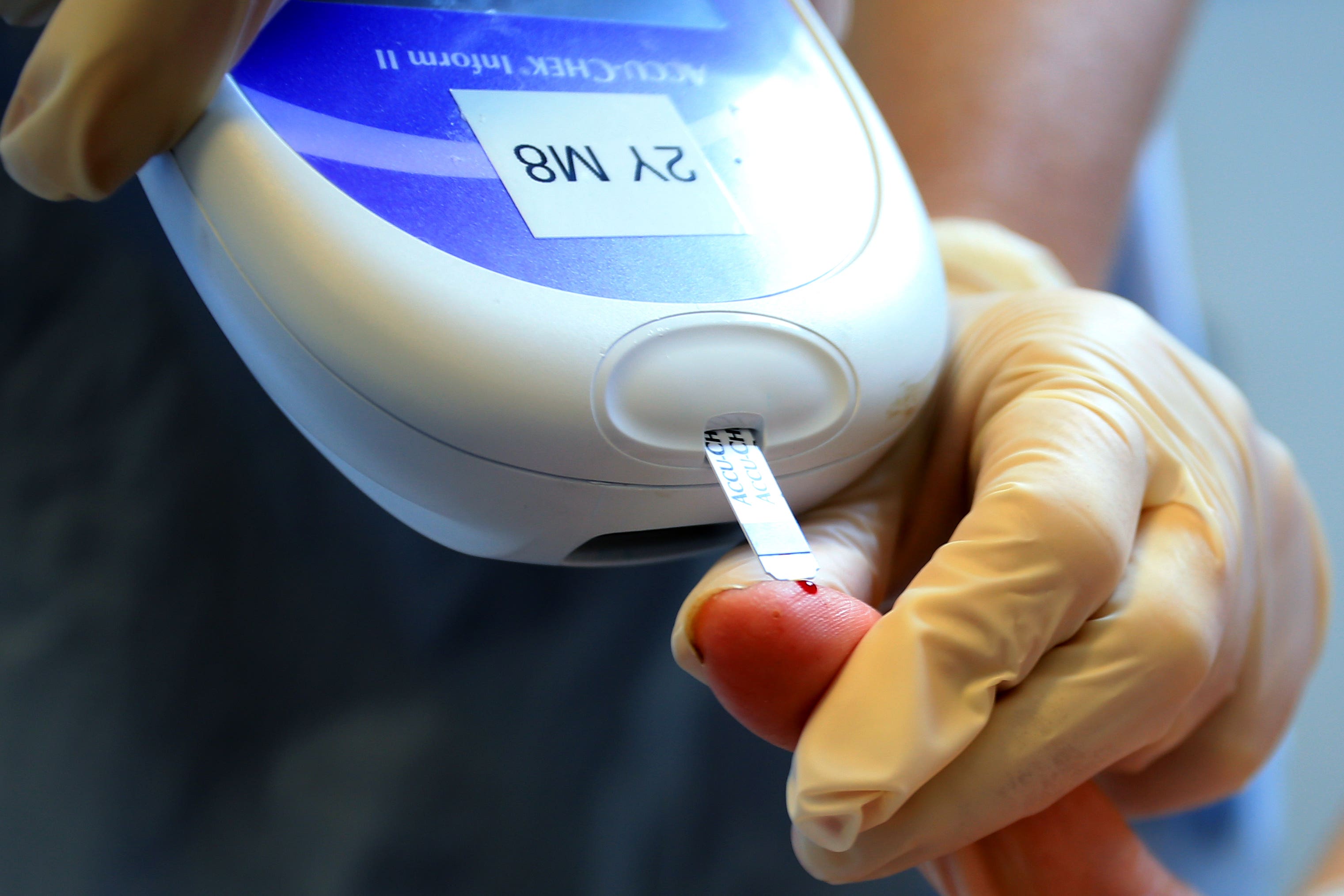250,000 middle-aged adults ‘do not know they have diabetes’ – research
Getting help sooner can mean people are less likely to suffer complications linked to type-two diabetes

Your support helps us to tell the story
From reproductive rights to climate change to Big Tech, The Independent is on the ground when the story is developing. Whether it's investigating the financials of Elon Musk's pro-Trump PAC or producing our latest documentary, 'The A Word', which shines a light on the American women fighting for reproductive rights, we know how important it is to parse out the facts from the messaging.
At such a critical moment in US history, we need reporters on the ground. Your donation allows us to keep sending journalists to speak to both sides of the story.
The Independent is trusted by Americans across the entire political spectrum. And unlike many other quality news outlets, we choose not to lock Americans out of our reporting and analysis with paywalls. We believe quality journalism should be available to everyone, paid for by those who can afford it.
Your support makes all the difference.Around 250,000 middle-aged adults do not know they have type two diabetes, new estimates suggests.
Researchers said all adults aged 40-70 should be screened for the condition – with earlier help cutting a person’s risk of complications linked to the disease.
Only high-risk adults are currently offered a blood test to check for the presence of type two diabetes during the NHS Health Check, the academics said.
But if every adult was offered the test, undiagnosed cases of the condition could be identified two years earlier, they added.
“Screening can detect cases of undiagnosed diabetes earlier than symptomatic or incidental diagnosis, allowing for earlier intervention, which may reduce the risk of diabetes complications,” the research team wrote in Diabetologia, the journal of the European Association for the Study of Diabetes.
The team, led by Dr Katie Young from the University of Exeter, wanted to assess whether people would get a diagnosis faster if the blood test was routinely used in the NHS check – also known as a mid-life MoT.
They looked at information on people taking part in the UK Biobank study who had been given a HbA1c blood test when they signed up.
Screening in adults aged 40–70 years can reduce the time to diabetes diagnosis by a median of 2.2 years compared with routine clinical care
This was then linked to GP records to see whether patients already had a diagnosis of diabetes.
Some 7.3% of those who had the test had already been diagnosed with the condition.
Among 167,000 people who did not have a diagnosis of type two diabetes, around 1% had undiagnosed diabetes.
People taking part in the study were tracked for 10 years.
Researchers found the average time to diagnosis was 2.2 years.
“Our population-based study shows that HbA1c screening in adults aged 40–70 years can reduce the time to diabetes diagnosis by a median of 2.2 years compared with routine clinical care,” the authors wrote.
“The findings support the use of HbA1c screening to reduce the time for which individuals are living with undiagnosed diabetes.”
The researchers said there are around 25 million adults aged 40-70 years living in the UK today without a diagnosis of diabetes.
So if the findings can be extrapolated, up to 250,000 adults in this age group have undiagnosed diabetes which could be detected by HbA1c-based screening, they said.
Lucy Chambers, head of research communications at Diabetes UK, said: “This research provides clear evidence of delays in the diagnosis of type 2 diabetes and suggests that tests of average blood sugar levels at population level could help to pick up cases of type 2 diabetes sooner than they otherwise would be.
“Early diagnosis is the best way to avoid the devastating complications of type 2 diabetes, and offers the best chance of living a long and healthy life with type 2 diabetes.
“Type 2 diabetes can sometimes go undetected for up to 10 years, which can lead to serious complications.
“While the symptoms of type 2 diabetes can sometimes be tricky to spot in the early stages, it’s important to know the signs to look out for, including being thirsty, unexplained weight loss, tiredness and passing urine more often. If you notice anything unusual, speak to your GP practice. “